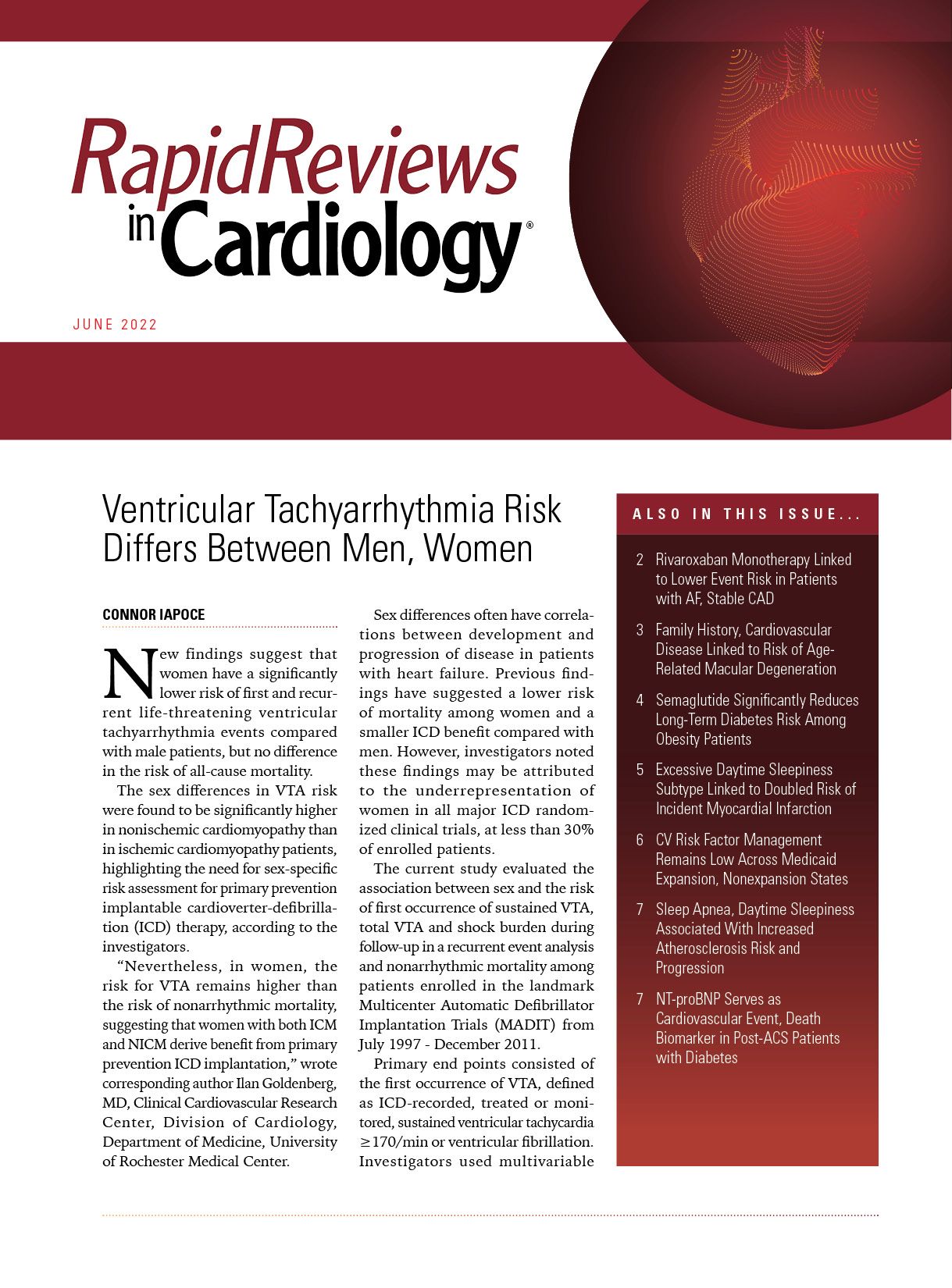Excessive Daytime Sleepiness Subtype Linked to Doubled Risk of Incident Myocardial Infarction
Investigators contribute more detailed understanding of the association between sleeping disorder and cardiovascular event risks.
Heming Wang, PhD

Increased risk of myocardial infarction among patients with excessive daytime sleepiness (EDS) may be driven by a specific subtype of the condition, according to new findings.
In new data presented at the Associated Professional Sleep Societies (SLEEP) 2022 Annual Meeting this week, a team of US investigators observed a distinct association between myocardial infarction risk and patients with EDS defined as including high sleep propensity. The findings contribute to a growing understanding of cardiovascular disease and event risk among patients with sleep disorders—a subject that has been approached in other SLEEP 2022-presented research already.
Investigators, led by Heming Wang, PhD, an investigator in the division of sleep and circadian disorders in the departments of medicine and neurology at Brigham and Women’s Hospital, sought to interpret the association between EDS subtypes and cardiovascular disease risk among affected patients.
EDS affects approximately 10-20% of the population, the investigators wrote, and its link to increased cardiovascular disease and mortality risk is well-evidenced. “However, EDS is heterogeneous, associated with both short and long sleep duration,” they wrote. “It is unclear whether each subtype is related to CVD.”
Wang and colleagues conducted a multivariable Cox proportional hazards regression on myocardial infarction to interpret the link between the occurrence of the cardiovascular event among patients with differing subtypes of EDS. Their patient population included a longitudinal medical record UK Biobank database including 471,991 individuals without cardiovascular disease at baseline.
The investigators relied on self-reported questionnaire outcome data to define rates of baseline EDS and sleep duration among the population. They adjusted for various sociodemographic and behavioral factors among eligible patients.
EDS with long sleep, defined as >9 hours nightly, was associated with a 91% increased incidence of myocardial infarction (hazard ratio [HR], 1.91; 95% CI, 1.34 – 2.71) when compared to a healthy sleep pattern, defined as 6-9 hours with symptoms of sleepiness. The team observed no association between incident myocardial infarction and EDS with normal or short nightly sleep.
Again, long sleep—but without sleepiness—was associated with a significantly increased risk of incident myocardial infarction (HR, 1.39; 95% CI, 1.14 – 1.71). Despite both observed subtypes of EDS associated with long sleep being linked to increased risk of cardiovascular event, investigators could not explain the association by presence of chronotype, insomnia, sleep apnea, depression, hypertension or type 2 diabetes. However, the association was confounded with patients’ self-reported overall health conditions, by another 7 percentage points (adjusted HR, 1.46; 95% CI, 1.02 – 2.08).
“Our study suggests the previous association evidence of EDS increasing risk of MI may be primarily driven by its long sleep subtype (high “sleep propensity”), but the underlying mechanisms are unclear,” investigators concluded. “Future work is needed to understand whether there are targetable interventions for this novel sleep phenotype that may improve cardiovascular health.”
The study, “Excessive Daytime Sleepiness with Long Sleep Duration Increases Myocardial Infarction Risk,” was presented at SLEEP 2022.
